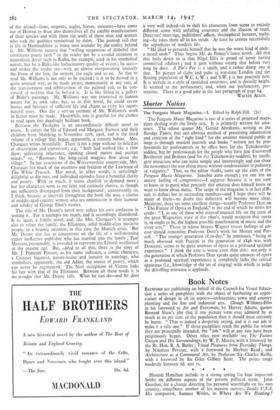Shorter Notices
The Penguin Music Magazine.—I. Edited by Ralph Hill. (1s.)
The Penguin Music Magazine is one of a series of projected maga- zines dealing with the lively arts. It is primarily written for ama- teurs. The editor quotes Mr. Gerald Abrahams, writing in the Sunday Times, that one obvious method of presenting information and criticism of the "right kind" for the amateur musical public at large is through musical journals and books "written not by pro- fessionals for professionals or by office boys for the Tchaikowsky- sodden, but by professionals for the people who have just discovered Beethoven and Brahms (and for the Tchaikowsky-sodden), by intelli- gent musicians who can write simply and interestingly and can show the newcomers the way about music without condescension or pedantry or vulgarity." That, so the editor thinks, sums up the aims of the Penguin Music Magazine. Sensible aims enough ; yet one has an uneasy feeling of compromise—I suppose because it is not easy to know or to guess what precisely thii amateur does himself know or want to know about music. The scope of the magazine is in fact diffi- cult to define; but in succeeding numbers—and I hope there will be many of them—no doubt this definition will become more clear. Meantime, there are some excellent things—notably Professor Dent on "The Future of Opera in England," at the end of which he states his credo: "I, as one of those who entered musical life on the crest of the great Wagnerian wave of the 1890's, would maintain that opera is, or ought to be, the highest possible manifestation of music and the sister arts." Those in whose breasts Wagner rouses feelings of un- ease should remember Professor Dent's work for Mozart and Pur- cell. "The younger generation of to-day," he continues, "being as much obsessed with Puccini as the generation of 1846 was with Donizetti, seems to be quite unaware of opera as a profound spiritual experience." I think the case is worse even than this : not .only is the generation of which Professor Dent speaks quite unaware of opera as a profound spiritual experience; it completely lacks the critical apparatus (i.e., kriowledge of the art of singing) with which to judge the drivelling nonsense it applauds.


































 Previous page
Previous page